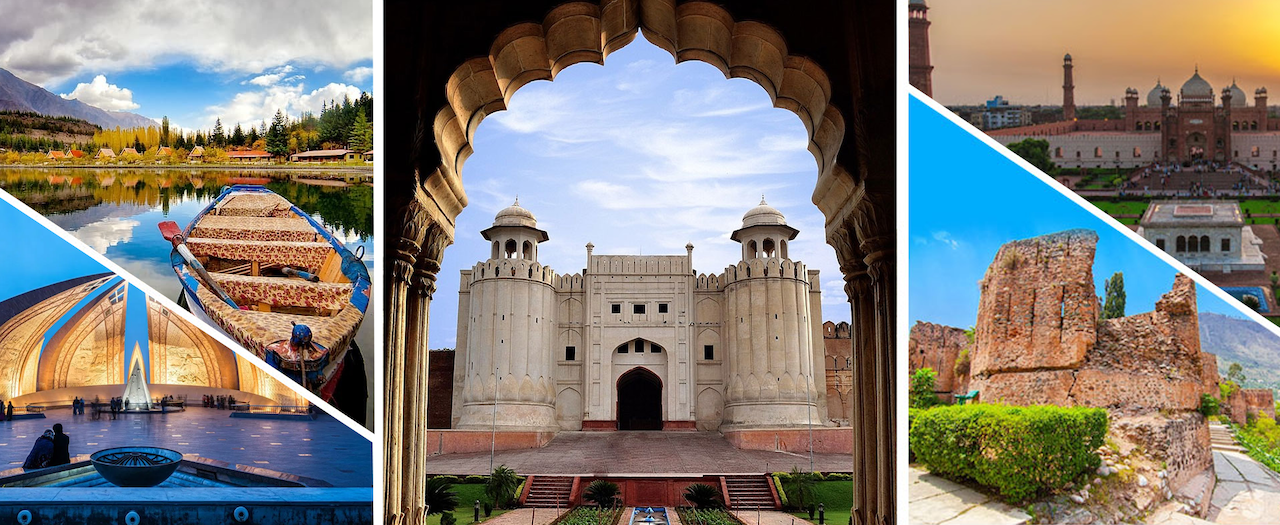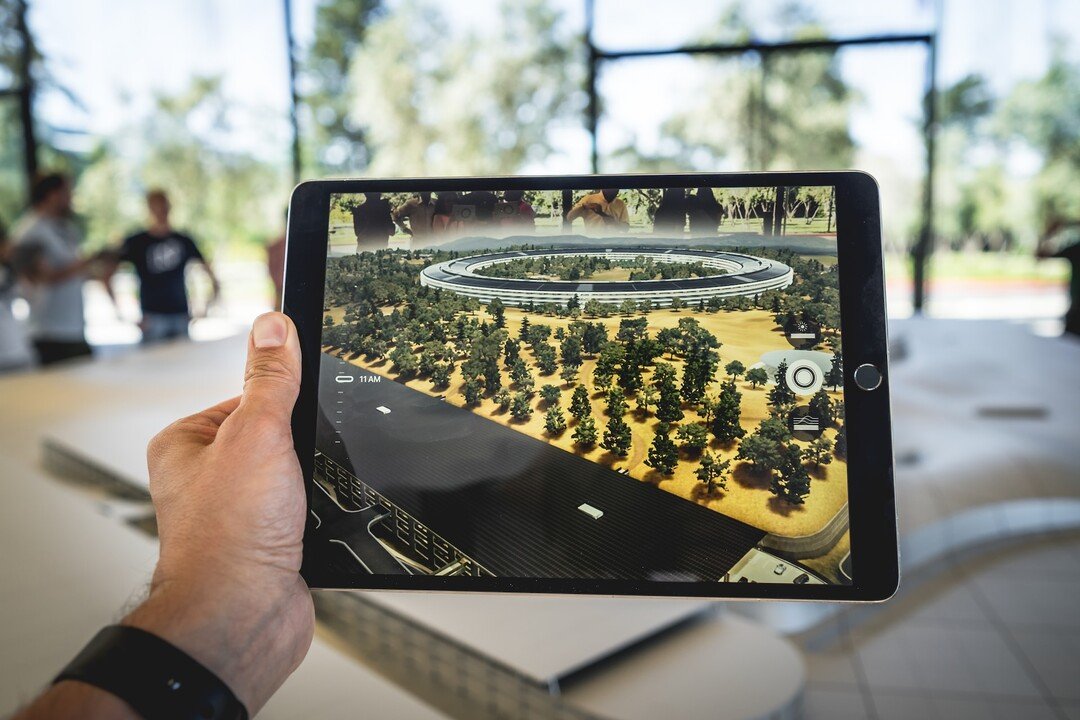Augmented reality (AR) is a technology that overlays digital information, such as images, videos, and 3D models, onto the real world, enhancing the user’s perception and interaction with their surroundings. In recent years, AR has gained significant attention in various industries, and Pakistan’s tourism industry is no exception. In 2023, the potential of augmented reality to revolutionize Pakistan’s tourism industry is immense, offering unique opportunities to engage and captivate visitors in a whole new way.
Before exploring the potential of augmented reality in Pakistan’s tourism industry, let’s understand what augmented reality entails. Augmented reality is an advanced technology that superimposes computer-generated elements onto the real world, allowing users to perceive a blended reality. This technology holds the promise of enhancing the way we experience and interact with our surroundings, including the tourism sector.
Pakistan, with its rich cultural heritage and breathtaking landscapes, has great potential to attract tourists from around the world. However, the tourism industry in Pakistan faces several challenges that hinder its growth. These challenges include limited infrastructure, security concerns, and a lack of effective cultural promotion. Augmented reality can address these challenges and elevate Pakistan’s tourism industry to new heights.
Read more: In Which Countries Do Pakistan’s Citizens Travel The Most?
Explore the Contents
- 1 Current challenges in Pakistan’s tourism industry
- 2 The potential of augmented reality in Pakistan’s tourism industry
- 3 Increased engagement and marketing opportunities
- 4 Boosting local economy and job creation
- 5 Overcoming barriers and embracing AR technology
- 6 Case studies: Successful AR implementations in other countries
- 7 conclusion
- 8 FAQs
Current challenges in Pakistan’s tourism industry
Pakistan’s tourism industry has immense potential, but it is hampered by various challenges. One of the major obstacles is the lack of adequate infrastructure. Many tourist destinations in Pakistan lack basic facilities such as proper roads, accommodation, and information centers. This hinders the overall visitor experience and deters potential tourists.
Another challenge is the perception of security concerns. Pakistan has faced security issues in the past, which has negatively impacted its tourism industry. Despite significant improvements in recent years, the perception of safety remains a challenge to attract international tourists.
Moreover, Pakistan’s rich cultural heritage is often underpromoted, leading to limited awareness among potential visitors. Cultural sites, historical landmarks, and traditional practices need effective marketing and promotion to attract tourists and showcase the diverse cultural tapestry of Pakistan.
The potential of augmented reality in Pakistan’s tourism industry

Augmented reality has the potential to transform the way tourists experience Pakistan’s attractions. By leveraging AR technology, the tourism industry can offer immersive and interactive experiences that captivate visitors. Here are some ways in which augmented reality can revolutionize Pakistan’s tourism industry:
Enhancing visitor experiences
Augmented reality can enhance visitor experiences by providing real-time information, historical context, and interactive elements. Tourists can use AR-enabled devices to scan landmarks and receive detailed information about their historical significance. This technology can bring the past to life, allowing visitors to visualize historical events in their original settings.
Virtual tours of historical sites
AR-powered virtual tours can transport tourists to historical sites regardless of their physical location. Visitors can explore ancient civilizations, walk through historical landmarks, and interact with virtual representations of significant artifacts. This offers an opportunity for people worldwide to experience Pakistan’s rich cultural heritage and historical wonders.
Cultural immersion through AR applications
AR applications can enable tourists to immerse themselves in Pakistani culture by overlaying traditional clothing, accessories, and performances onto the real world. Visitors can try on traditional attire virtually, learn local dances, and even witness cultural festivities through augmented reality. This interactive and engaging experience fosters a deeper understanding and appreciation of Pakistani culture.
Increased engagement and marketing opportunities
In addition to enhancing visitor experiences, augmented reality presents unique opportunities for engagement and marketing within the tourism industry. Here are some ways AR can be utilized:
Interactive AR advertisements
AR advertisements can be placed strategically in popular tourist areas, offering visitors an interactive and immersive experience. For example, a hotel could showcase its amenities through AR visuals, allowing potential guests to explore rooms and facilities virtually. Such advertisements are more engaging and memorable, creating a lasting impression on potential tourists.
AR-powered travel apps
Augmented reality can power travel apps that provide tourists with real-time information, navigation assistance, and personalized recommendations. These apps can guide visitors through tourist destinations, highlighting points of interest, restaurants, and local businesses. By integrating augmented reality into travel apps, tourists can easily access relevant information and make informed decisions during their travels.
Social media integration
Augmented reality and social media platforms can go hand in hand to promote tourism in Pakistan. Visitors can use AR filters to enhance their photos and videos, making their experiences more shareable and engaging. This user-generated content can act as a powerful marketing tool, attracting a wider audience to Pakistan’s tourist destinations.
Boosting local economy and job creation
The integration of augmented reality in Pakistan’s tourism industry can have a positive impact on the local economy and job creation. By embracing AR technology, new avenues of employment can be created in fields such as app development, content creation, AR experience design, and maintenance of AR infrastructure. This can empower local communities and stimulate economic growth.
AR-driven tourist activities, such as treasure hunts, interactive games, and guided tours, can contribute to the local economy by generating revenue and attracting more visitors. Furthermore, the integration of AR can encourage tourists to explore and support local businesses, such as handicraft stores, traditional food vendors, and local tour operators.
Overcoming barriers and embracing AR technology

To fully leverage the potential of augmented reality in Pakistan’s tourism industry, several steps need to be taken:
Government support and investment
The government should recognize the potential of augmented reality and provide support for its integration into the tourism industry. This can be done through funding initiatives, tax incentives, and partnerships with technology companies. By fostering an environment conducive to AR implementation, the government can pave the way for sustainable growth in Pakistan’s tourism sector.
Collaboration with tech companies
Collaboration between the tourism industry and technology companies is crucial to implement AR solutions effectively. Tourism organizations should partner with AR experts to develop innovative applications tailored to Pakistan’s unique cultural and natural attractions. Such collaborations can ensure that AR experiences align with the specific needs and aspirations of Pakistan’s tourism industry.
Educating and training tourism industry professionals
To embrace augmented reality, it is essential to educate and train professionals in the tourism industry. This includes tour guides, hotel staff, and travel agents who interact with tourists directly. Training programs should focus on familiarizing professionals with AR technology and its potential applications, ensuring they can provide a seamless and enriching experience for visitors.
Case studies: Successful AR implementations in other countries
Looking at successful AR implementations in other countries can provide valuable insights for Pakistan’s tourism industry:
Japan’s AR-enhanced travel experiences
Japan has embraced augmented reality to enhance the travel experience for tourists. AR-powered smartphone apps enable visitors to explore historical sites, access multilingual information, and even witness virtual reenactments of significant events. This has led to increased engagement and satisfaction among tourists, highlighting the potential benefits of AR in the tourism sector.
AR-guided tours in Europe
Several European countries have implemented AR-guided tours to enrich the experiences of visitors. Tourists can explore landmarks and cities with the help of AR overlays, providing historical context, interactive elements, and informative narratives. These immersive tours have proven to be engaging and educational, attracting a diverse range of visitors.
Read more: 13 Best Ways Make Money with Virtual Reality in 2023
conclusion
In conclusion, augmented reality holds immense potential for Pakistan’s tourism industry in 2023. By leveraging AR technology, the industry can enhance visitor experiences, overcome existing challenges, and boost the local economy. The integration of augmented reality in Pakistan’s tourism sector can revolutionize the way tourists engage with the country’s cultural heritage, historical sites, and natural wonders.
By embracing AR and implementing it effectively, Pakistan can create unforgettable experiences for visitors, foster cultural exchange, and position itself as a premier tourist destination. It is essential for the government, tourism organizations, and technology companies to collaborate and invest in the potential of augmented reality for sustainable growth and a thriving tourism industry in Pakistan.
FAQs
How can augmented reality enhance cultural experiences for tourists in Pakistan?
Augmented reality can enhance cultural experiences by providing real-time information, virtual tours, and interactive elements that allow tourists to engage with Pakistan’s cultural heritage in a more immersive and memorable way.
Are there any AR applications specifically designed for adventure tourism in Pakistan?
While specific AR applications for adventure tourism in Pakistan may not be widely available yet, the potential for creating such experiences, such as AR-guided hiking trails or virtual exploration of challenging terrains, is significant and can greatly enhance adventure tourism.
Can augmented reality help in promoting lesser-known tourist destinations in Pakistan?
Absolutely! Augmented reality can bring attention to lesser-known tourist destinations by offering virtual tours, showcasing unique features, and providing engaging information to pique the interest of potential visitors.
What kind of infrastructure is required to implement augmented reality in the tourism industry?
Implementing augmented reality in the tourism industry requires a robust digital infrastructure, including high-speed internet connectivity, access to AR-enabled devices (such as smartphones or smart glasses), and AR content creation capabilities.
How can small businesses in Pakistan benefit from the integration of augmented reality?
Small businesses can benefit from augmented reality by leveraging AR-powered marketing initiatives, collaborating with AR developers to create unique experiences, and tapping into the potential of user-generated AR content to attract and engage customers.



